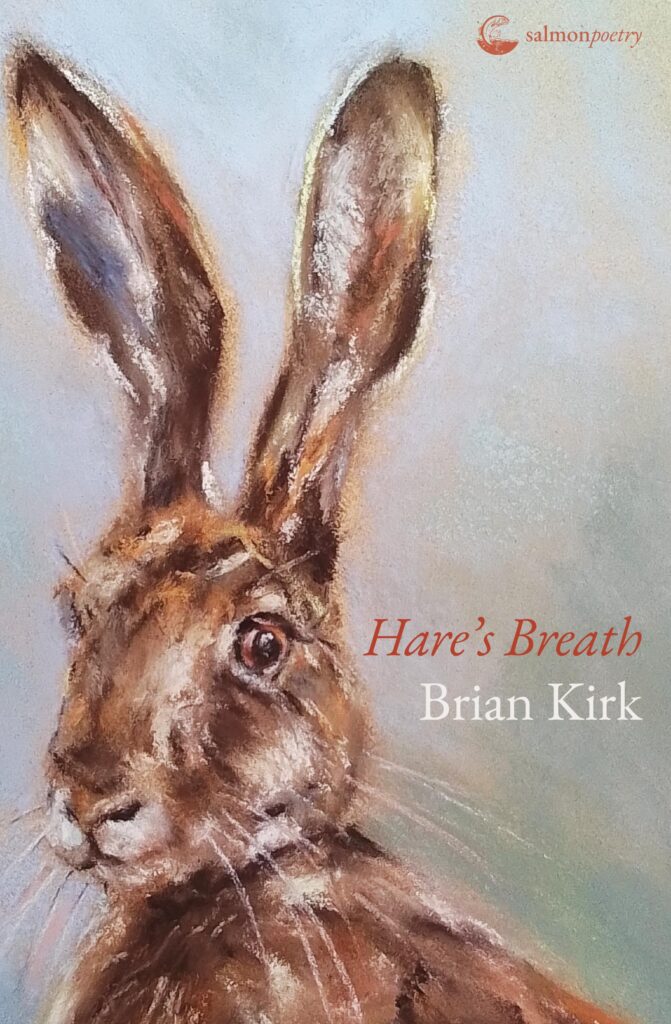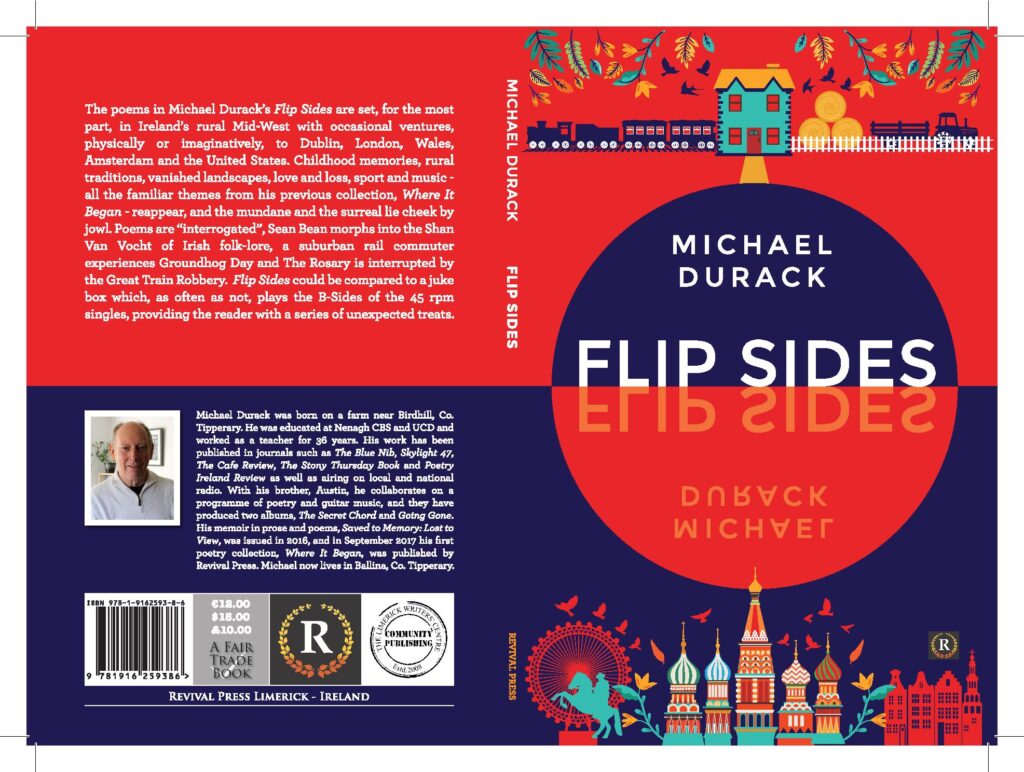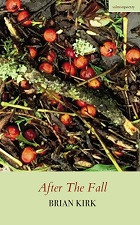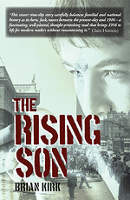Every year around this time I compile a list of poems and stories I published in the previous 12 months. I suppose it’s a kind of taking stock, looking back at some minor successes to steel the will for the year ahead. I don’t think it’s healthy to judge one’s writing purely by the binary notions of publication / rejection (success / failure), but I suppose it’s a human failing to be that way inclined. All in all 2024 was a pretty good year in that I published a lot of new poetry written subsequent to the publication of my last collection Hare’s Breath(Salmon Poetry) in November 2023. Also, I published two new stories and an extract from my novel Riverrun during the year. I hope to write and publish more short stories in 2025. It’s important to note also that I spent a lot of time and energy writing words that were not published and are likely never to be. But I believe nothing is wasted. It’s the practice that matters.
So here’s how 2024 panned out:
- My short story Call Me Cathy was published at Fictive Dream in January.
- My sonnet About Love was published in Live Encounters Poetry & Writing in January.
- My poem How to Pursue a Just War was published as part of the Poem Alone 24 hour anthology in January.
- I was the featured reader at The Listeners in Rathfarnham in February. The Listeners is a monthly reading curated by poets Daragh Bradish and Ron Carey.
- My poem Storm Glass was shortlisted for the Ó Bhéal Five Words Poetry Competition judged by Theo Dorgan in February.
- My poem St. Patrick’s Day in the Holylands, Belfast was Highly Commended in the 2023 Gregory O’Donoghue International Poetry Competition in March.
- My poem In Portugal was published in Volume 1, Issue 1 of Hog River Press in March.
- My poem Under The Floorboards was published in Abridged 0-100: From Under The Floorboards in March.
- I was a featured poet at Eat The Storms podcast, episode 5, season 8, hosted by Damien Donnelly in March.
- My poem Hawk was published in Flare issue 21.
- My poems Lazarus and Get It On were published at Masticadores Taiwan in April.
- My poem Poetry was published in 14 Magazine Series 2, Issue 5, in July.
- My poem Official Business was published in Crannóg Magazine Issue 61 in Autumn.
- My short story Getting It was published in the Honest Ulsterman in September.
- My poem Little Big Man was placed second in the Allingham Festival Poetry Competition 2024 judged by Kate Newmann in November.
- My poems Nostos and Wrong Side of the Tracks were published in Live Encounters Poetry & Writing in November.
- My novel extract The Liffey Speaks was published in the Storms Journal, Issue 4 in November.
I also have poems forthcoming in January in the Stony Thurday Book and Ink Sweat & Tears and a story with Barren Magazine due in early 2025.
Personal highlights of the year for me included reading at Fingal Poetry Festival in September in the wonderful Library at Ardgillan Castle in Skerries. The room was packed and the audience were so engaged. It was a real pleasure for me and a kind of homecoming too as I hail from Rush which is just up the coast. Huge thanks to Enda Coyle-Greene for inviting me to read.
I also had the pleasure of launching the new poetry collection, Where All Ladders Start (Alba Publishing) by Maeve O’Sullivan in November. It was a wonderful evening filled with great poetry, music and friends.
In music I was pleased to see a return to form for Vampire Weekend with their new album Only God Was Above US. I finally got to see them live at 3Arena in November which was a bonus. There were some great gigs in 2024, but the two I’d pick as best were Gruff Rhys in the Sugar Club in February and Art Brut at Yes in Manchester in October. (I’ve wanted to see this band for so long and Eddie Argos did not disappoint!). The low point musically has to have been Elvis Costello in Vicar Street in September. What looked like an enticing prosect of Elvis and Steve Nieve in a lo-fi stripped back set up turned out to be a disaster with Elvis’s voice constantly failing him with no band or backing singers to mask the fact. Awful.
In theatre, Stephen Rea in Krapp’s Last Tape at the Project Arts Centre was hugely enjoyable. The Agreement at the Gate in October was a surprise hit with loads of laughs I wasn’t expecting.
I read some great novels during the year including Hamnet by Maggie O’Farrell, The Good Apprentice and The Sea, The Sea by Iris Murdoch, Ilona Wants a Phone by Alison Langley, Lightbourne by Hesse Phillips, Mouthing by Orla Mackey and Slow Horses by Mick Herron.
In poetry I enjoyed Louise Gluck Poems 1962-2020, John Burnside Selected, Landscape of the Body by Lani O’Hanlon, A Unison of Breaths by Lynda Tavakoli, The Colour of Time by Úna Ní Cheallaigh and of course Maeve O’Sullivan’s Where All Ladders Start.
I thought S.J. Bradley’s stories Maps of Imaginary Towns (Fly on the Wall Press) was excellent. In non-fiction I was engrossed in Mark O’Connell’s A Thread of Violence (which sent me back to re-read Banville’s The Book of Evidence). As birthday presents I got two excellent and cherished books from two of my brothers. The first, The Village of Longing by George O’Brien, is still for me one of the best memoirs I’ve ever read, and the second Patrick Kavanagh’s Self-Portrait, a beautiful slip of a book based on the RTÉ documentary first published in 1964 by Dolmen Press.
I’ve been following Toby Litt’s substack page all year. He always has something interesting to say about the compulsion to write, the process of writing and also some really detailed thoughts on the technical aspects. I spent a lot of time working on a novel project this year that I realise is going nowhere at the moment, so I’ve parked it. This year the aim is to read more closely and write only what engages me fully whether that be poem or story or novel. Let’s see where that takes me.
Thanks to everyone who engaged with my work during the year – readers, editors and fellow writers. Best wishes for a happy, peaceful and productive 2025 to all of you!
Brian
31st December 2024





